 | TODAY IN SCIENCE HISTORY NEWSLETTER - 25 MARCH |
| Feature for Today |
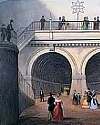 On 25 Mar 1843, the Thames Tunnel in London, the world's first tunnel under a navigable river, was opened for pedestrians between Rotherhithe and Wapping. Work had started on 2 Mar 1825. Excavation was engineered by Marc Brunel, and had been fraught with difficulties. On 25 Mar 1843, the Thames Tunnel in London, the world's first tunnel under a navigable river, was opened for pedestrians between Rotherhithe and Wapping. Work had started on 2 Mar 1825. Excavation was engineered by Marc Brunel, and had been fraught with difficulties.Planned ramps for use by carts and freight traffic were never added due to cost. But to a public that marvelled as if it were the eighth wonder of the world, flocked to pay admission to walk under the Thames... if they dared! David W. Bartlett, was an American author who made two year-long stays in London (the first at age 19). He wrote a first-person account of his experiences. In this extract from What I Saw in London, you can get a sense of being there for yourself, seeing what the pedestrians still enjoyed, a few years after the tunnel had opened. (By 1869, the tunnel began use for an underground railway line, as it continues to do in the present day.) |
| Book of the Day | |
| |
| Quotations for Today | |
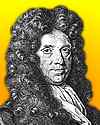 | "[We need not think] that there is any Contradiction, when Philosophy teaches that to be done by Nature; which Religion, and the Sacred Scriptures, teach us to be done by God: no more, than to say, That the balance of a Watch is moved by the next Wheel, is to deny that Wheel, and the rest, to be moved by the Spring; and that both the Spring, and all the other Parts, are caused to move together by the Maker of them. So God may be truly the Cause of This Effect, although a Thousand other Causes should be supposed to intervene: For all Nature is as one Great Engine, made by, and held in His Hand." |
| QUIZ | |
| Before you look at today's web page, see if you can answer some of these questions about the events that happened on this day. Some of the names are very familiar. Others will likely stump you. Tickle your curiosity with these questions, then check your answers on today's web page. | |
| Births | |
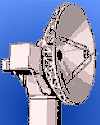 |  Kenneth Linn Franklin, born on 25 Mar 1923, is an American astronomer who detected a source of radio waves within our Solar System, but not the Sun. The initial chance discovery found the waves, which appeared to be short bursts of static, similar to those produced by thunderstorms on conventional radio receivers. Later it was discovered that the radio waves were circularly polarized, so a magnetic field was involved. Kenneth Linn Franklin, born on 25 Mar 1923, is an American astronomer who detected a source of radio waves within our Solar System, but not the Sun. The initial chance discovery found the waves, which appeared to be short bursts of static, similar to those produced by thunderstorms on conventional radio receivers. Later it was discovered that the radio waves were circularly polarized, so a magnetic field was involved.  What is the source of these radio waves? What is the source of these radio waves? |
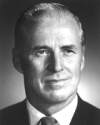 |  Norman Ernest Borlaug, born 25 Mar 1914, is an American scientist who was awarded the Nobel Prize for Peace in 1970. He was one of those who laid the groundwork of the so-called Green Revolution. Norman Ernest Borlaug, born 25 Mar 1914, is an American scientist who was awarded the Nobel Prize for Peace in 1970. He was one of those who laid the groundwork of the so-called Green Revolution.  What is the Green Revolution? What is the Green Revolution? |
| Deaths | |
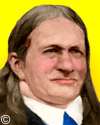 |  Friedlieb Ferdinand Runge (1795-1867) was a German chemist considered to be the originator of the widely used analytic technique of paper chromatography. In the course of his research on synthetic dyes, he isolated and named several compounds including carbolic acid (1934, now called phenol), pyrrole, rosolic acid (aurin), and cyanol (aniline) which had a common source. Friedlieb Ferdinand Runge (1795-1867) was a German chemist considered to be the originator of the widely used analytic technique of paper chromatography. In the course of his research on synthetic dyes, he isolated and named several compounds including carbolic acid (1934, now called phenol), pyrrole, rosolic acid (aurin), and cyanol (aniline) which had a common source. What was the source of these compounds? What was the source of these compounds? |
| Events | |
 On 25 Mar of a certain year, RCA announced the production of colour television sets. On 25 Mar of a certain year, RCA announced the production of colour television sets. In which decade was RCA's announcement made? In which decade was RCA's announcement made? | |
 On 25 Mar 1903, The Times newspaper, London, England, reported the recent discovery of radium and that it "possesses the extraordinary property of continuously emitting heat, without combustion, without chemical change of any kind, and without any change to its molecular structure, which remains spectroscopically identical after many months of continuous emission of heat..." On 25 Mar 1903, The Times newspaper, London, England, reported the recent discovery of radium and that it "possesses the extraordinary property of continuously emitting heat, without combustion, without chemical change of any kind, and without any change to its molecular structure, which remains spectroscopically identical after many months of continuous emission of heat..." Who were the scientists that discovered radium? Who were the scientists that discovered radium? | |
| Answers |
When you have your answers ready to all the questions above, you'll find all the information to check them, and more, on the March 25 web page of Today in Science History. Or, try this link first for just the brief answers. Fast answers for the previous newsletter for March 24: Joseph H. Taylor; petra = rock and oleum = oil; Johann Wolfgang D�bereiner; swine flu; the decade including the year 1955. |
| Feedback |
 If you enjoy this newsletter, the website, or wish to offer encouragement or ideas, please send feedback by using your mail reader Reply button. If you enjoy this newsletter, the website, or wish to offer encouragement or ideas, please send feedback by using your mail reader Reply button. |
--
If you do not want to receive any more newsletters, Unsubscribe
To update your preferences and to unsubscribe visit this link


Δεν υπάρχουν σχόλια:
Δημοσίευση σχολίου